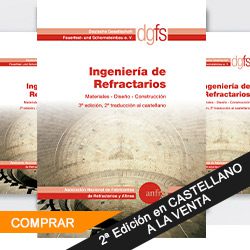Chinese-origin fused alumina and bauxite spot prices gained as raw material and transportation costs rise. While many buyers are reluctant to accept the increase, some producers warned that the uptrend could continue amid supply tightness.
Chinese suppliers have raised offers for refractory-grade bauxite and fused alumina in the spot market as raw material and transportation costs jumped following Beijing’s move to cut truckload volume.
The Chinese ministry of transportation cut the maximum truckload volume for four-axle trucks to 31 tonnes, down from 40 tonnes previously, with effect from 21 September.
Furthermore, some market participants are also seeing a shortage of trucks, which further tightened transportation between production facilities to mine.
«Trucks are in tight supply, many drivers are reluctant to accept deliveries,» said a Henan-based fused alumina producer.
In addition, bauxite mine output in China has been capped due to the Chinese government’s restriction on new mining permit, a refractory-grade producer told IM.
Suppliers have raised their offers for all Shanxi-origin bauxite grades by $10/tonne week-on-week, according to IM assessment on 13 October.
Spot prices for Shanxi-origin, rotary kiln 85%/1.8/3.15 bauxite were assessed at $250-280/tonne on a FOB Xingang basis, while the 86%/1.8/3.15 material was at $280-290/tonne FOB, up $10/tonne week-on-week.
Meanwhile, 87%/2.0/3.2 bauxite, calcined kiln FOB Xingang was assessed at $300-325/tonne, while 88%/1.8/3.25 material at $330-360/tonne, also an increase of $10 compared to the previous week.
Fused alumina
Under the environment regulation, producers are legally required to switch to natural gas for production in China.
However, some plants are not connected to the gas grid and as a result, calcined bauxite production fell. As calcined bauxite is a raw material used for brown fused alumina production, the supply tightness has in turn capped BFA output.
Spot prices for 95.5% Al 2O3 min brown fused alumina (refractory sized 0-1,1-3,3-5mm) increased to $585-600/tonnes, up from $570-590/tonne in the previous week.
Sharp spikes in Chinese domestic alumina prices after October’s Golden Week holiday is also pushing white fused alumina (WFA) prices higher.
Chinese domestic alumina prices was assessed at a range of 2,200-2,500 yuan ($327-372) per tonne on a delivered in China basis on Thursday October 13, up from 2,050-2,100 yuan a week earlier, according to IM’s sister publication Metal Bulletin.
Consequently, refractory-grade WFA spot prices have been lifted by the rising raw material alumina cost.
Spot prices for 99% Al2O3 min WFA in 25kg bag rose to €625-650/tonne on a CIF Europe basis, up from €625-650/tonne previously, according to IM’s assessment on 13 October.
Producers warned that there could be further price increases in the coming weeks amid volatility in raw material cost.
«My offers to customers for the past two days will only have a five-day validity, as prices will increase again in two days’ time,» a Henan-based fused alumina producer told IM.
While another Shanxi-based bauxite and BFA supplier agreed that supply is tight they added that it is not severe enough to cause upward volatility in prices.
Some buyers are holding out for lower prices but sellers warned that supplies are running out during the wait, a bauxite producer and one trader said.
Furthermore, unlike in the past, many producers are not willing to sell at a loss, and some are even selective about their customers, a Tianjin-based trader said.
«The buyers are deceiving themselves, the market prices are still rising,» he added.
While many buyers are reluctant to accept the sudden increase in prices, they may slowly accept the higher rate by November, traders and producers said.
«I expect the impact would be more obvious in two-three months, we will see then if they [the buyers] would believe it or not,» one bauxite producer said.



